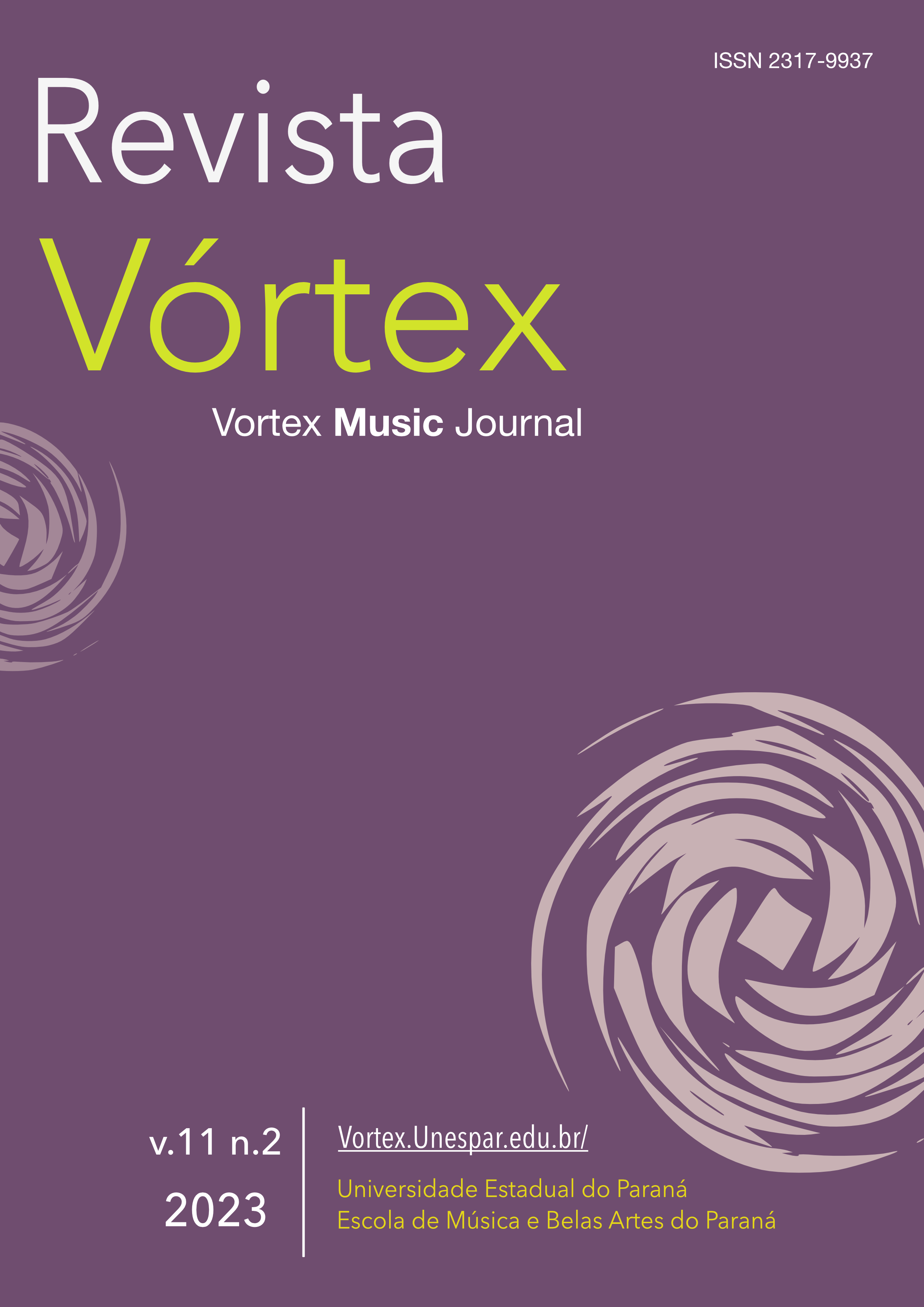Listening after nature? Field recording in flux.
DOI:
https://doi.org/10.33871/23179937.2023.11.2.7637Keywords:
recording, presence, post-human, process, ecologyAbstract
What are the inherent ethical, political, and conceptual challenges in field recording? The answer to these questions guides Listening after nature: field recording, ecology, critical practice by Mark Peter Wright. The following review, in addition to detailing some of the text's main themes, exalts the books inherent pedagogical ethos. Particularly, its offering of other creative approaches to the process of recording sound in the field.
Downloads
References
WRIGHT, Mark Peter. Listening After Nature: Field Recording, Ecology, Critical Practice. New York: Bloomsbury Academic, 2022.
Downloads
Published
How to Cite
Issue
Section
License
Copyright (c) 2023 Rui Miguel Paiva Chaves

This work is licensed under a Creative Commons Attribution 4.0 International License.
Autores mantêm os direitos autorais e concedem à revista o direito de primeira publicação, com o trabalho simultaneamente licenciado sob a Licença Creative Commons Attribution que permite o compartilhamento do trabalho com reconhecimento da autoria e publicação inicial nesta revista.






